- Home
- Alison Weir
Anne Boleyn, a King's Obsession Page 2
Anne Boleyn, a King's Obsession Read online
Page 2
Anne sped upstairs, still buzzing with excitement, to the chamber she shared with Mary, whom she found fastening around her neck the gold pendant in the shape of a bull that she always wore on important occasions. The girls had been given one each by their father; the bull was his family’s heraldic emblem, and a pun on its name.
Mary leaned into the mirror. Her black eyes, with their alluring slant, were watching Anne’s reflection.
Anne was savoring her news, wondering how to break it to Mary with maximum impact. She could no longer contain herself. “I’m going to court!” she announced.
Mary swung round, shock and fury in her face. “You?” she shrilled. “But—but I am the elder.”
“Father knows that, but the Regent asked for me.”
“The Regent?”
“I am summoned to the court of the Netherlands to serve her. It is a great honor to be asked. Father said so.”
“But what of me?” Mary’s lovely face was flushed with outrage. “Am I not to go too?”
“No. Father said he has other plans for you.”
“What plans?” Mary hissed.
“I don’t know. He didn’t say. Why don’t you ask him?”
“I will! He cannot pass me over like this.”
But he had. Anne hugged that delicious knowledge to herself. For the first time in her life, it felt good to be the younger and less beautiful sister.
—
Elizabeth Howard, Lady Boleyn, unraveled the bolt of tawny velvet and held it up against Anne.
“It suits you,” she said. The mercer standing respectfully at her side beamed. “We’ll have this one, and the good black, the yellow damask, and the crimson tinsel. Pray send your bill, Master Johnson.”
“Very good, my lady, very good,” the merchant replied, gathering up the fabrics that had been rejected and withdrawing from the parlor.
“I’m glad the Regent gave us good notice,” Mother said. “It allows us time to get these gowns made up. You should be grateful that your father has made such generous provision for you.” She tilted her daughter’s chin upward and smiled at her. “You have fine eyes, and innate grace,” she said. “You will do well and make me proud.” Anne’s heart was full. She loved her mother more than anyone else in the world.
Elizabeth Howard herself was dark in coloring, but her long Howard face was rounded with generous lips and fine eyes. In youth she had been a celebrated beauty, and the poet laureate, Master Skelton, had dedicated verses to her, likening her charms to those of the gorgeous Cressida of Troy. It was Mother’s little conceit. Her great conceit was her pride in her aristocratic lineage. She let no one forget that she came of the noble House of Howard, and it was no secret that, had her family not been in royal disfavor at the time, plain Thomas Boleyn, as he then was, could never have aspired to marry her, even though his grandsire was the Earl of Ormond. But with her father stripped of his titles and not long released from the Tower for fighting on the wrong side in the battle that had put the late King Henry on the throne, her chances of making a decent marriage had been slender; and so she had permitted herself to be tied to a young and ambitious man whose recent ancestors had been in trade.
But thanks to that, the Boleyns were rich. By dint of their business acumen and by marrying wealthy heiresses, they had steadily acquired wealth and lands. Anne’s great-grandfather, Sir Geoffrey, had been a mercer like the fellow who had recently departed with his wares, but he had risen to be Lord Mayor of London and been knighted. That was the way one made good in the world, and it was new and able men such as the Boleyns, rather than the old nobility, who were now favored by the young King Henry.
But for all that Father had done—and was still doing—to make himself a suitable husband in the eyes of his high-and-mighty in-laws, there was no doubt in anyone’s mind, even her children’s, that Mother had married beneath her.
“You will be the equal of any of the other maids,” she said to Anne now. “You can be justly proud of your Howard ancestry. Remember, we Howards are descended from King Edward Longshanks and from all the English monarchs back to William the Conqueror, so you have royal blood in your veins and must be worthy of it.”
“Yes, Mother,” Anne said, bobbing a curtsey. She walked slowly back to her bedchamber, thinking on what Lady Boleyn had said. She was deeply proud of her heritage, especially now that the Howards had been rehabilitated and were firmly back in favor at court. In the long gallery she paused before a portrait of Grandfather Howard, the Earl of Surrey. She was in awe of this just and honest aristocrat, the head of the family, and of his son, whose picture was further along—Uncle Thomas, her mother’s brother, a stern-faced, no-nonsense soldier and courtier. She had only a few memories of his wife, the aunt for whom she herself had been named, but she could never forget that the late Princess Anne of York had been daughter to King Edward IV and sister to the present King’s mother. It made King Henry her own cousin, in a sort of way.
Anne had long been aware that any love her parents might have had for each other in the beginning had long since died, for they avoided each other as much as possible. It was easy to understand why Mother looked down on Father. What was more difficult to comprehend was why Father treated Mother, that highly prized bride, with ill-disguised contempt.
It disturbed Anne that Mother had once been compared to the Trojan beauty Cressida. For, having pledged her undying love for Prince Troilus, Cressida, cruelly captured by the Greeks, had treacherously betrayed him with the heroic Diomedes. Father Davy had read them the story when they had studied the Greek myths.
“Her name has become a byword for a faithless woman,” the good friar had said. Anne stifled a gasp. Clearly he did not know what Skelton had written of her mother. The five of them—Tom and Henry had been at home then—had looked at one another, appalled.
Yet Anne had never heard of any hint of a blemish on Mother’s reputation. Lady Boleyn presided over her household with competent authority, and preferred country life to the teeming existence of the court, although she did sometimes go there when needed as an occasional lady-in-waiting to Queen Katherine.
At home Anne and Mary helped Mother in her still room, where they made comfits and jams while she distilled sweet waters or prepared medicines and poultices from the herbs they had gathered in the gardens.
“It is essential that you both learn the skills that will enable you to run a great house,” she was always reminding them. “A lady should keep her servants busy not only by precept, but by example.” But if Anne might happen to glance up from what she was doing, she would occasionally surprise Mother with her hands idle, a faraway look on her face and a tune playing on her smiling lips, as if she had withdrawn into a secret life. And again she would wonder if her mother had a lover.
—
The months that she had envisaged dragging sped by. Expensive tutors were engaged to give her and Mary advanced instruction in singing and dancing, skills that Anne acquired easily and enjoyed.
“Bravo!” cried the tutor, as she twirled and leapt and skipped in branles, farandoles, and basse dances. It came easily to her, as if she had been born to it. Mary, who was all arms and legs at awkward angles, would glower at her. Father had not revealed what his plans for Mary were, and Anne now doubted that he had any, while Mary’s angry jealousy simmered and often bubbled over. Thrown together as the sisters were, it did not make for a peaceful existence.
Sir Thomas, however, was impervious. Anne was to go into the world as his ambassador, a walking testimonial to his greatness. If there was any talent that might be useful at court, she was to acquire it. Father Davy was deputed to enhance her musical skills.
“You have a true voice,” he said, and Anne thrilled to hear it, for his praise was never won lightly.
He also encouraged Anne and George’s love of poetry. The two of them would sit together for hours composing and transcribing verses and binding them into books. Father Davy told Anne she had a rare talent for it, especially for a woman. He ref
rained from remarking on how Mary thought that cow rhymed with low.
In these months in which her wardrobe was being prepared, Anne became an expert embroiderer. She made biliments to edge necklines and hoods, quilted sleeves and pouches, and decorated her lawn night rails in bright scarlets and greens. She discovered the pleasure of enhancing her clothes with novel details: a border here, a contrasting color there, and—always—long hanging sleeves to hide her extra nail. Her nurse, Mrs. Orchard, a plump, motherly soul who had been with her since birth and was to accompany her as chaperone on her journey, did all the plain sewing, stitching and hemming under-smocks and petticoats. As the weeks went by, the pile of finished garments stowed in Anne’s new traveling chest grew and grew.
In the autumn, Father returned to the court of the Netherlands, leaving Mother in charge of the preparations for Anne’s departure.
“Remember,” he said to Anne before he left, “your task is to perfect the attributes that will secure you a good marriage. I have had you educated to that purpose, and to instill virtue.” Father was very zealous on virtue. He was always warning his daughters of the dire consequences—mostly for him—if they fell from it. They were his assets—his jewels, as he liked to put it—and their success was essential to him.
—
In these last months at Hever, Anne found herself resenting the dull routine. She longed for her escape into the glamorous world of courts. She and Mary found their chief excitement in putting on their best gowns and, escorted by a groom and a maid, riding the three miles into nearby Edenbridge for the market that was held there every Thursday, just to show off their finery. When they were not at lessons or sewing, they played cards, or visited the houses of neighbors with their mother—and fought constantly over silly things until Lady Boleyn lost patience and sent them to their rooms to cool down.
Their existence was dominated by the unchanging round of the seasons. That autumn of 1512 was heralded as usual by Michaelmas, soon followed by Harvest-tide, when St. Peter’s Church by the castle was filled with ears of wheat and hymns of thanksgiving. That was the grease season, when all the local gentry went hunting. Father had ensured that Anne and Mary were both competent horsewomen, and they were allowed to participate in the chase or go hawking in the company of their neighbors. In the evenings they savored the rich game from their bag, served on thick bread trenchers saturated with meat juices.
On wet days they took their exercise in the long gallery above the great hall, a newfangled improvement to the castle that Father had decided he must have. Up and down his daughters walked, past the pictures and hangings that adorned the walls, bickering and gossiping and occasionally slapping and pinching each other.
As autumn fell, fires and braziers were lit, and the castle was filled with the sweet aroma of beeswax candles. The three young Boleyns played cards, dice, and chess in the flickering light, or teased each other with riddles, before tumbling into their feather beds. On many nights Anne lay awake, with the damask bed curtains pulled back and the moonlight glinting on the diamond-paned windows, imagining the glittering life to come in the magnificent court that lay miles across the sea in another land.
Hard on the heels of All Souls, when the nights were dark and ghosts were said to walk in the woodland that faced the castle, came the season of Advent, followed by the Christmas and Twelfth Night celebrations. Before Anne knew it, it was Candlemas, then Lady Day—and soon it would be May Day, when she and Mary always observed the ancient custom of rising early to bring in the May blossoms. With the May came Father, back from the Netherlands.
It was time, at last, for her to depart.
1513-1514
Anne found the sea voyage exhilarating; she stood on the deck, bracing herself against the brisk spring breeze and the choppiness of the waves, and watched the chalk cliffs of Dover receding into the distance. She kept thinking of Father’s last proud embrace, Mother’s tearful kiss, Mary not bothering to hide her jealousy, and George—bless him—struggling not to cry. She had almost cried herself, knowing that she would miss them all, especially Mother and George. She allowed herself a brief moment of sadness, then turned resolutely to Sir John Broughton, a knight of Westmorland with whom her father had become acquainted at court. Sir John was traveling to Bruges on business, and had offered to extend his journey so that he could escort her to Mechlin. He was about thirty, fresh-faced, with curly red hair and a broad northern accent.
“I am honored to have charge of such a charming young lady,” he had said, bowing, then he’d helped Anne and Mrs. Orchard to mount their horses, given instructions to the grooms responsible for the wagon bearing their luggage, and led them over the drawbridge and away to the south. Throughout the journey to the coast he had been the epitome of courtesy and good company, selecting the best inns at which to lodge overnight, demanding the choicest food, and entertaining the two ladies with witty stories. The weather had been fine and they had made excellent progress. At Dover, Sir John had commandeered good cabins for Anne and Mrs. Orchard in the ship that was to take them across the English Channel, and he had accompanied them whenever they took the air on deck.
From her father and Sir John, Anne had learned a great deal about the lady she was soon to serve. Margaret of Austria was the only daughter of the Holy Roman Emperor Maximilian—a wily old fox if ever there was one, her father had said—by his late wife Mary, the Duchess of Burgundy. It was through their marriage that the Burgundian Netherlands had come to the House of Habsburg. Margaret had once had a brother, the Archduke Philip, a young man of such beauty that he had been known as Philip the Handsome.
“He married the Queen of Castile, but he died young, and Queen Juana, who had loved him fiercely, went mad with grief and was deemed unfit to rule,” Sir John explained as they sat at dinner at the captain’s table in his oak-paneled dining room in the sterncastle. “Her father, King Ferdinand of Aragon, took over the government of Castile in her name, and the Emperor appointed the Archduchess Margaret, Duchess of Savoy, as his regent in Burgundy and the Netherlands, in Philip’s place, and entrusted her with the upbringing of Juana’s children, including her heir, the Infante Charles of Spain, although in Burgundy they call him the Archduke. You will meet them soon, I’m sure.”
“What happened to Queen Juana?” Anne asked, her curiosity piqued by this sad tale.
Sir John frowned. “There are many tales about her. It is said that she refused to give up her husband’s body for burial, dragging it around Spain with her for months and ordering her servants to open the coffin so that she could gaze on the corpse and kiss and embrace it. In the end they forced her to relinquish it so that it could be interred, and she was sent to a convent to be cared for by the nuns.”
Anne shuddered. You would have to be mad to do such horrible things. They were the stuff of nightmares.
“I feel sorry for her children,” she said, sipping her wine. “Do you think she will ever get better?”
Sir John frowned again. “There are reports that she is not even ill, but was shunted aside so that her father could seize power in Castile. With Juana shut away and her son only thirteen, there is no one else to rule that kingdom.”
“But that’s dreadful!” Anne cried. “If she is not mad, then she should be restored to her throne. Surely her own father would not treat her so terribly.”
“When kingdoms are at stake, Mistress Anne, human feelings count for nothing,” Sir John observed. “But Queen Juana might well be mad, as most people think.”
“God send that she is,” Anne said. “It is better for her not to be aware that she has lost her husband, her children, and her crown.”
“She is still queen. When he is of age, her son will become joint monarch with her.”
“How I pity her.” Anne laid down her knife and rose to her feet. She did not want to hear any more about tragic Queen Juana or the ruthlessness of kings.
—
Thanks to the frisky wind, the crossing passed quickly, and soon the
y were sailing along the Zwin Channel to Bruges. Anne was agog to see the bustling city with its wondrous churches, its soaring belfry in the vast market square, its pretty canals and tall red-brick houses, so unlike the timbered thatched cottages of England. In the busy streets, well-dressed merchants jostled with foreigners of all nations, and there was a general air of prosperity. She was surprised when Sir John told her that Bruges was a dying port.
“The Zwin Channel is silting up. Soon this prosperity will dwindle.”
She stared at him. “What will happen to these people?”
“They are resourceful. They will find a way to preserve their valuable trading links, especially with England. And Bruges is famous for its art—there are many great painters working here. Did you know that William Caxton published the first printed book in this city?”
“Did he?” There were several books from Caxton’s London press at Hever; she had read them all. Not so long ago, Father Davy had told her, all books had been written by hand. It was a marvelous age she lived in, she thought.
Anne would have loved to linger in Bruges, but Sir John quickly completed his business and said they must press on to Ghent. They traveled on horseback across flat country that seemed strange after the sweeping hills of the Weald of Kent and was crisscrossed by canals and dikes and avenues of tall trees. After Ghent they turned eastward, and before long they could see a tall tower in the distance.
“That’s Mechlin,” Sir John said. “The capital of Burgundy. And that tower belongs to St. Rumbold’s Cathedral. You can see it for miles.”
Anne felt a thrill of anticipation. As they drew nearer to the city, myriad spires came into view around the great church, and clusters of red roofs. They were nearly there. In a matter of hours, please God, she would be making her debut at the court of Burgundy and being presented to the Regent.
“I’ll be glad of a rest,” Mrs. Orchard sighed. “We’ve been in the saddle for days, it seems, and now you and I have to go all the way back, Sir John. I hope we find a decent inn tonight, and that Anne gets a fine lodging.” Anne eyed her impatiently. Who wanted to rest when one could be plunging into the pleasures of court life? But then Mrs. Orchard was old—she must be at least thirty—and there was gray in her brown hair.

 Richard III and the Princes in the Tower
Richard III and the Princes in the Tower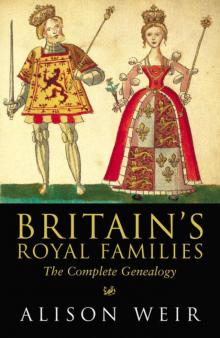 Britain's Royal Families: The Complete Genealogy
Britain's Royal Families: The Complete Genealogy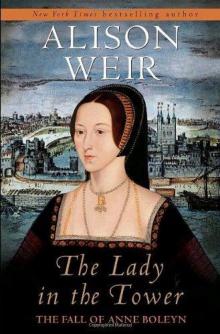 The Lady in the Tower: The Fall of Anne Boleyn
The Lady in the Tower: The Fall of Anne Boleyn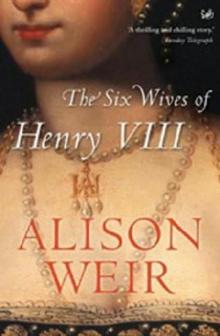 Six Wives of Henry VIII
Six Wives of Henry VIII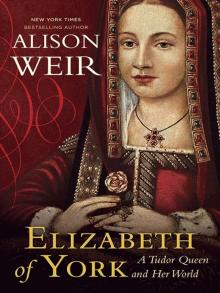 Elizabeth of York: A Tudor Queen and Her World
Elizabeth of York: A Tudor Queen and Her World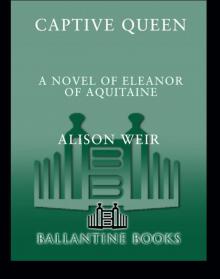 Captive Queen
Captive Queen Innocent Traitor
Innocent Traitor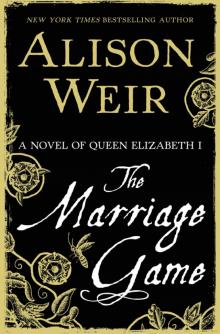 The Marriage Game
The Marriage Game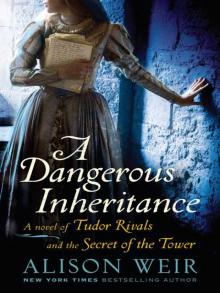 A Dangerous Inheritance
A Dangerous Inheritance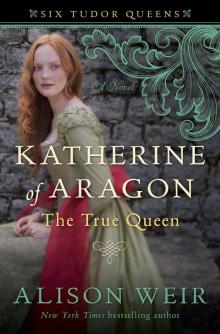 Katherine of Aragón: The True Queen
Katherine of Aragón: The True Queen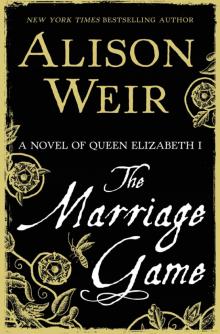 The Marriage Game: A Novel of Queen Elizabeth I
The Marriage Game: A Novel of Queen Elizabeth I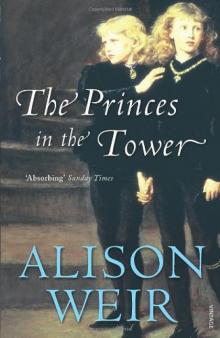 Princes in the Tower
Princes in the Tower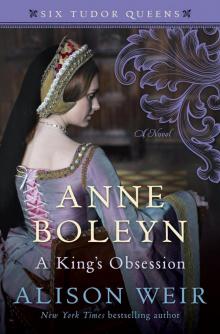 Anne Boleyn: A King's Obsession
Anne Boleyn: A King's Obsession Traitors of the Tower
Traitors of the Tower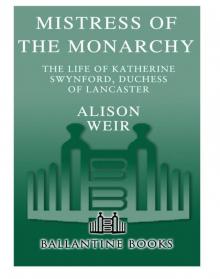 Mistress of the Monarchy: The Life of Katherine Swynford, Duchess of Lancaster
Mistress of the Monarchy: The Life of Katherine Swynford, Duchess of Lancaster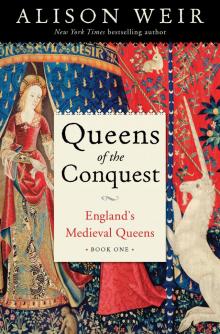 Queens of the Conquest: England’s Medieval Queens
Queens of the Conquest: England’s Medieval Queens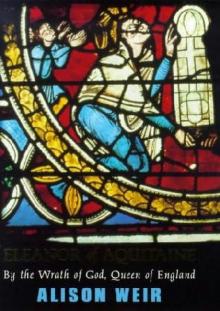 Eleanor of Aquitaine: A Life
Eleanor of Aquitaine: A Life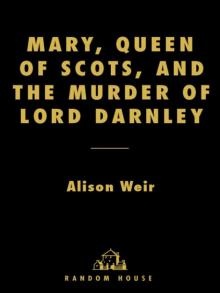 Mary, Queen of Scots, and the Murder of Lord Darnley
Mary, Queen of Scots, and the Murder of Lord Darnley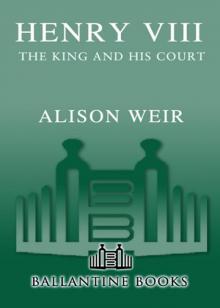 Henry VIII: The King and His Court
Henry VIII: The King and His Court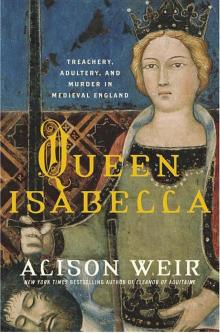 Queen Isabella: Treachery, Adultery, and Murder in Medieval England
Queen Isabella: Treachery, Adultery, and Murder in Medieval England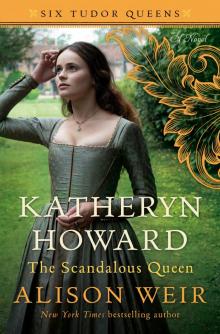 Katheryn Howard, the Scandalous Queen
Katheryn Howard, the Scandalous Queen Arthur- Prince of the Roses
Arthur- Prince of the Roses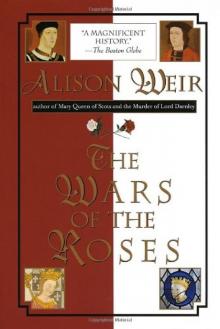 The Wars of the Roses
The Wars of the Roses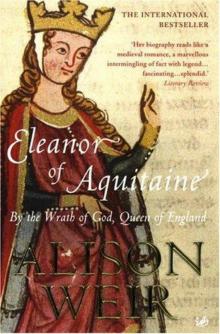 Eleanor of Aquitaine: By the Wrath of God, Queen of England
Eleanor of Aquitaine: By the Wrath of God, Queen of England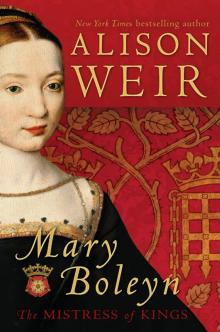 Mary Boleyn: The Great and Infamous Whore
Mary Boleyn: The Great and Infamous Whore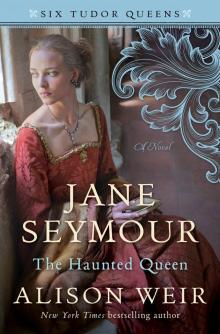 Jane Seymour: The Haunted Queen
Jane Seymour: The Haunted Queen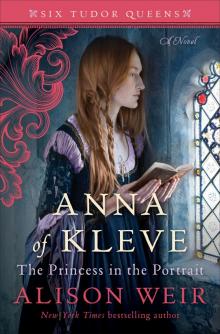 Anna of Kleve, the Princess in the Portrait
Anna of Kleve, the Princess in the Portrait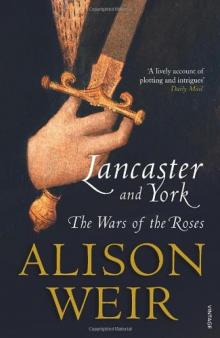 Lancaster and York: The Wars of the Roses
Lancaster and York: The Wars of the Roses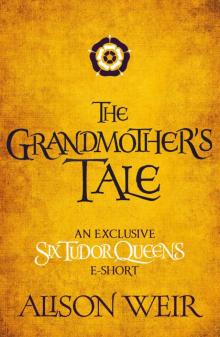 The Grandmother's Tale
The Grandmother's Tale The Princess of Scotland (Six Tudor Queens #5.5)
The Princess of Scotland (Six Tudor Queens #5.5)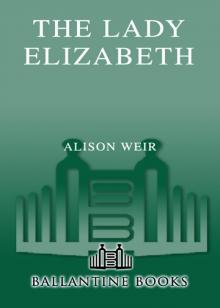 The Lady Elizabeth
The Lady Elizabeth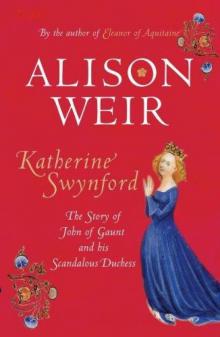 Katherine Swynford: The Story of John of Gaunt and His Scandalous Duchess
Katherine Swynford: The Story of John of Gaunt and His Scandalous Duchess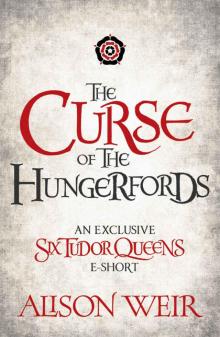 The Curse of the Hungerfords
The Curse of the Hungerfords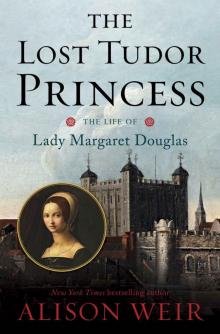 The Lost Tudor Princess: The Life of Lady Margaret Douglas
The Lost Tudor Princess: The Life of Lady Margaret Douglas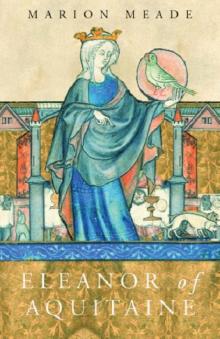 Eleanor of Aquitaine
Eleanor of Aquitaine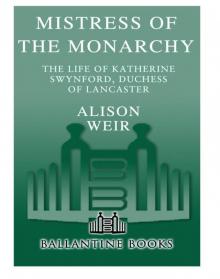 Mistress of the Monarchy
Mistress of the Monarchy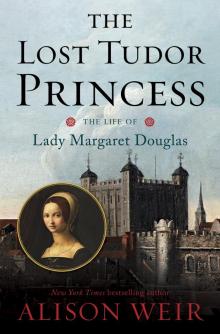 The Lost Tudor Princess
The Lost Tudor Princess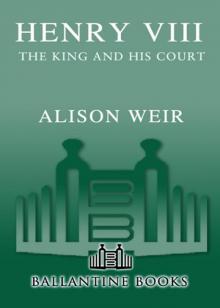 Henry VIII
Henry VIII Anne Boleyn, a King's Obsession
Anne Boleyn, a King's Obsession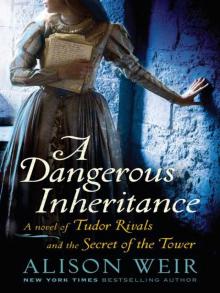 A Dangerous Inheritance: A Novel of Tudor Rivals and the Secret of the Tower
A Dangerous Inheritance: A Novel of Tudor Rivals and the Secret of the Tower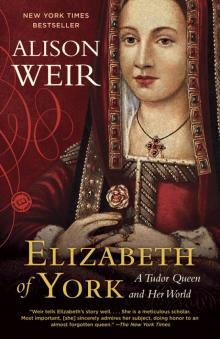 Elizabeth of York
Elizabeth of York Katherine of Aragon, the True Queen
Katherine of Aragon, the True Queen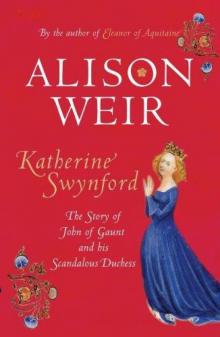 Katherine Swynford
Katherine Swynford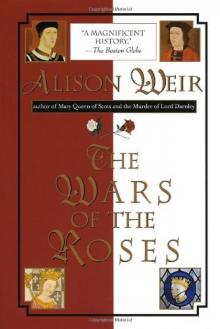 Wars of the Roses
Wars of the Roses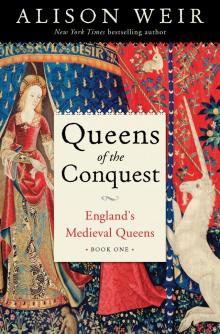 Queens of the Conquest
Queens of the Conquest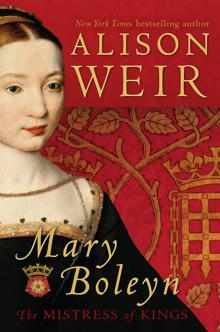 Mary Boleyn
Mary Boleyn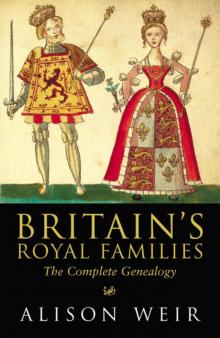 Britain's Royal Families
Britain's Royal Families The Tower Is Full of Ghosts Today
The Tower Is Full of Ghosts Today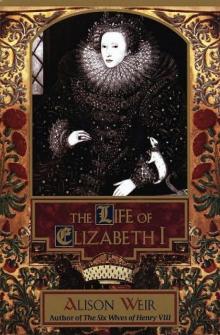 Life of Elizabeth I
Life of Elizabeth I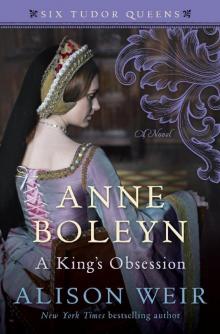 Anne Boleyn A King's Obssession
Anne Boleyn A King's Obssession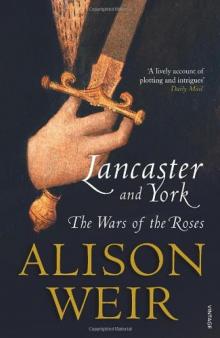 Lancaster and York
Lancaster and York Jane Seymour, the Haunted Queen
Jane Seymour, the Haunted Queen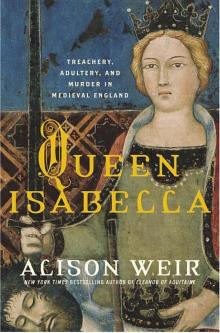 Queen Isabella
Queen Isabella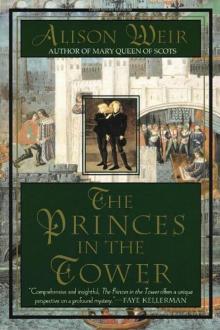 The princes in the tower
The princes in the tower